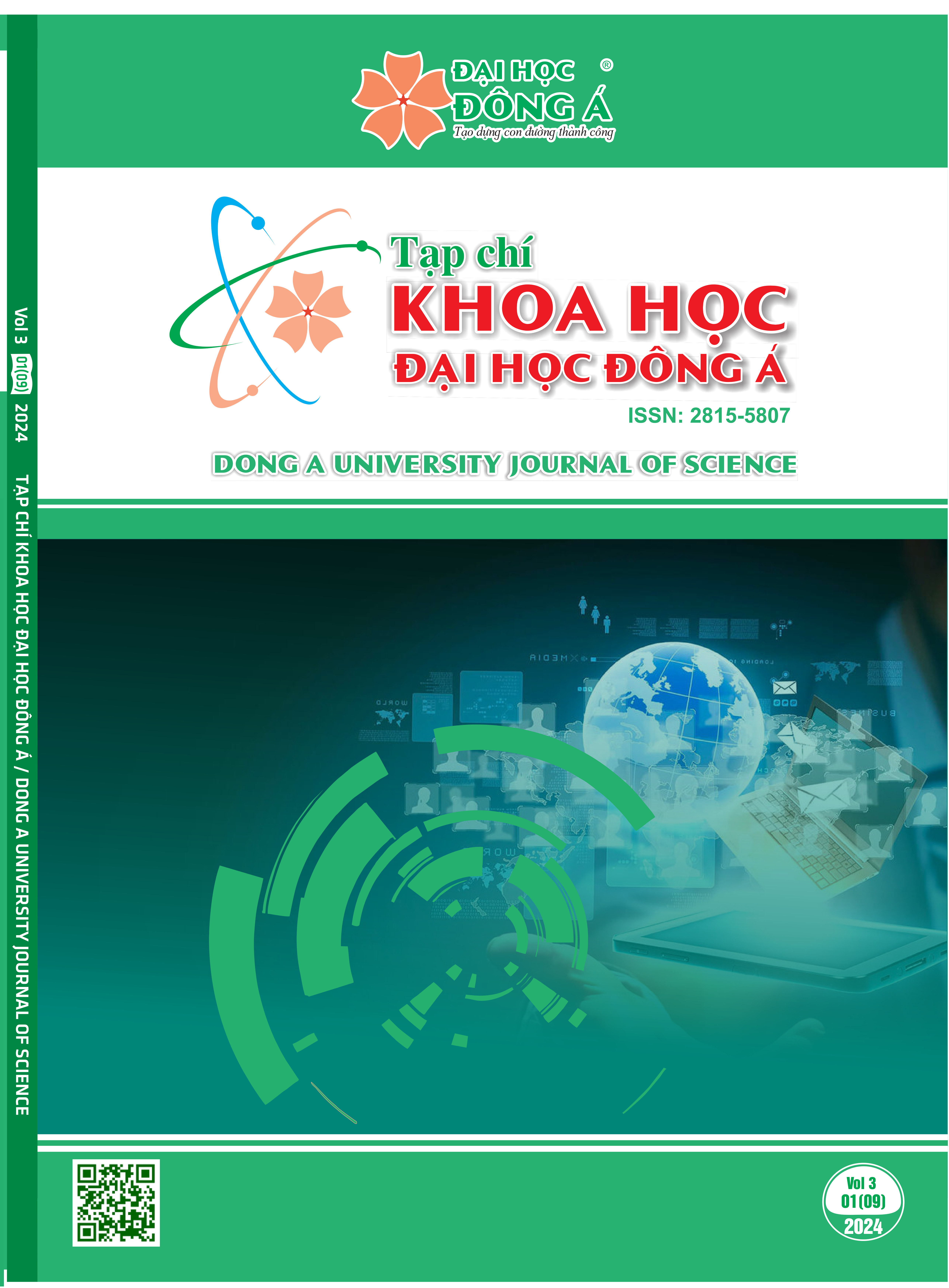Researching the Factors Influencing Successful and Sustainable Cooperation in the Vietnamese Tourism Supply Chain
Main Article Content
Abstract
The primary aim of this article is to investigate the relationship of successful and sustainable cooperation among partners within the tourism supply chain by assessing the roles of factors such as trust, commitment, communication, and value sharing. To achieve this objective, we constructed a questionnaire and distributed it to management representatives of businesses using convenient random sampling method. We gathered a total of 427 eligible responses. Subsequently, SmartPLS3 software was employed for statistical analysis to test and evaluate the quality of the measurement model and the structural equation model (SEM). The research results have demonstrated that all research hypotheses were accepted at a statistically significant level of P value < 0.05. This signifies that factors like trust, commitment, communication, and value sharing significantly impact the creation of successful and sustainable cooperation. Among these factors, trust was identified as the most critical and having the strongest influence on the collaborative relationship. The article also contributes to expanding the theoretical framework related to the research topic and offers a fresh perspective on successful cooperation within the tourism supply chain in Vietnam.
Article Details
Keywords
tourism supply chain, collaboration, trust, value sharing, communication
References
Anderson, J. C., & Narus, J. A. (1984). A model of the distributor's perspective of distributor-manufacturer working relationships. Journal of marketing, 48(4), 62-74.
Bichou, K., & Gray, R. (2004). A logistics and supply chain management approach to port performance measurement. Maritime Policy & Management, 31(1), 47-67.
Cohen, J. (1998). Statistical Power Analysis for the Behavioral Sciences (Second Edition ed.). Lawrence Erlbaum Associates, Publishers.
Costa, F., Denis Granja, A., Fregola, A., Picchi, F., & Portioli Staudacher, A. (2019). Understanding relative importance of barriers to improving the customer-supplier relationship within construction supply chains using DEMATEL technique. Journal of Management in Engineering, 35(3), 04019002.
Chen, J. V., Yen, D. C., Rajkumar, T., & Tomochko, N. A. (2011). The antecedent factors on trust and commitment in supply chain relationships. Computer Standards & Interfaces, 33(3), 262-270.
Datta, P. P., & Christopher, M. G. (2011). Information sharing and coordination mechanisms for managing uncertainty in supply chains: a simulation study. International Journal of Production Research, 49(3), 765-803.
Deepen, J. M. (2007). Logistics outsourcing relationships: measurement, antecedents, and effects of logistics outsourcing performance. Springer Science & Business Media.
DeVellis, R. F. (2012). Scale development: Theory and applications. Sage Publications. http://www.sciepub.com/reference/181517
Hair, J. F., Hult, G. T. M., Ringle, C. M., Sarstedt, M., & Thiele, K. O. (2017). Mirror, mirror on the wall: a comparative evaluation of composite-based structural equation modeling methods. Journal of the academy of marketing science, 45, 616-632.
Hair, J. F., Ringle, C. M., & Sarstedt, M. (2013). Partial least squares structural equation modeling: Rigorous applications, better results and higher acceptance. Long range planning, 46(1-2), 1-12.
Hair, J. F., Risher, J. J., Sarstedt, M., & Ringle, C. M. (2019). When to use and how to report the results of PLS-SEM. European Business Review, 31(1), 2-24.
Henseler, J., Ringle, C. M., & Sarstedt, M. (2015). A new criterion for assessing discriminant validity in variance-based structural equation modeling. Journal of the academy of marketing science, 43, 115-135.
Höck, M., & Ringle, C. (2010). Local strategic networks in the software industry: An empirical analysis of the value continuum. International Journal of Knowledge Management Studies - Int J Knowl Manag Stud, 4. https://doi.org/10.1504/IJKMS.2010.030789
Huang, Y., Song, H., Huang, G. Q., & Lou, J. (2012). A comparative study of tourism supply chains with quantity competition. Journal of Travel research, 51(6), 717-729.
Kač, S. M., Mrnjavac, E., & Slavić, N. (2019). RELATIONSHIP FACTORS IN TOURISM SUPPLY CHAIN MANAGEMENT IN SLOVENIA AND CROATIA. Tourism in Southern and Eastern Europe... 5, 475-487.
Li, Q., & Tang, F. (2009). An integrated model and coordination mechanism of tourism supply chain management. 2009 International Conference on Test and Measurement,
Mlaker Kac, S., Gorenak, I., & Potocan, V. (2016). The influence of trust on collaborative relationships in supply chains.
Moorman, C., Zaltman, G., & Deshpande, R. (1992). Relationships between providers and users of market research: The dynamics of trust within and between organizations. Journal of Marketing Research, 29(3), 314-328.
Morgan, R. M., & Hunt, S. D. (1994). The commitment-trust theory of relationship marketing. Journal of marketing, 58(3), 20-38.
Piboonrungroj, P., & Disney, S. M. (2009). Tourism supply chains: a conceptual framework. Tourism III: Issues in PhD Research, 132, 132-149.
Shang, Y., Mehmood, K., Iftikhar, Y., Aziz, A., Tao, X., & Shi, L. (2021). Energizing intention to visit rural destinations: how social media disposition and social media use boost tourism through information publicity. Frontiers in psychology, 12, 782461.
Song, H. (2012). Tourism supply chain management. Routledge.
Svensson, G. (2005). Mutual and interactive trust in business dyads: condition and process. European Business Review, 17(5), 411-427.
Tapper, R., & Font, X. (2004). Tourism supply chains. Report of a desk research project for the travel foundation, 23.
Wang, J.-S. (2009). Trust and relationship commitment between direct selling distributors and customers. African Journal of Business Management, 3(12), 862.
Zhang, X., Song, H., & Huang, G. Q. (2009). Tourism supply chain management: A new research agenda. Tourism management, 30(3), 345-358.


